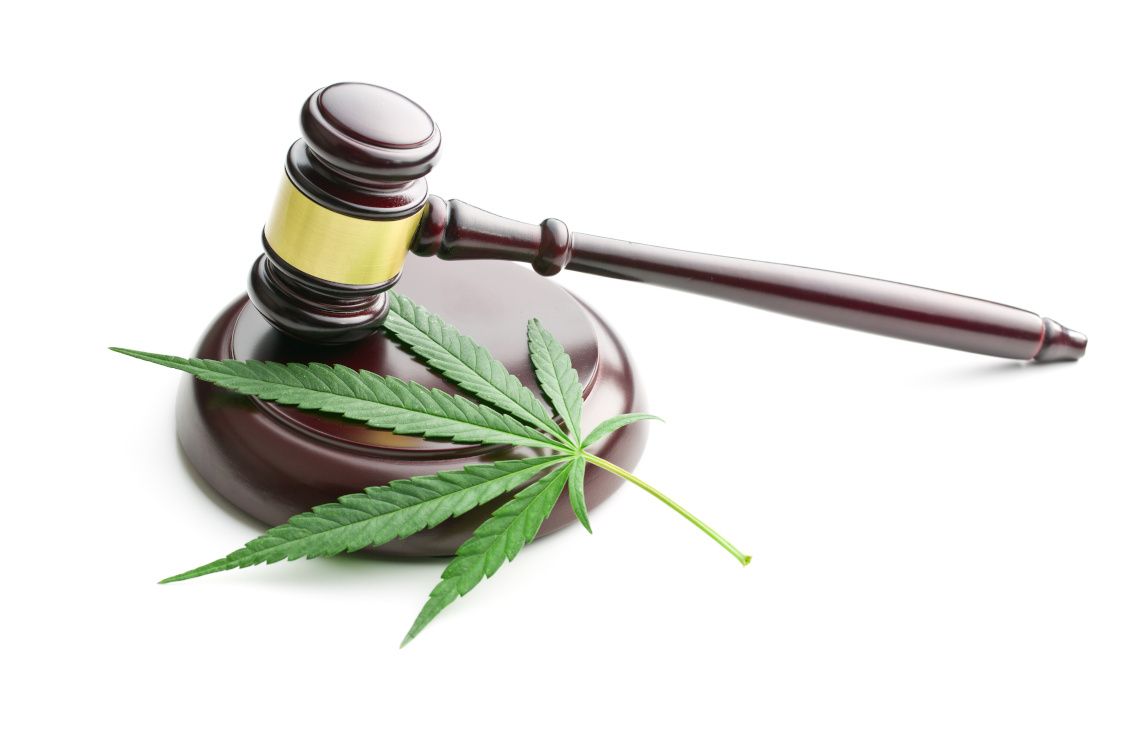AHPA comments on new cannabis legislation that would also regulate CBD
AHPA submits comments to the Senate sponsoring office of the "Cannabis Administration and Opportunity Act."
Photo Credit © Jiri Hera - Stock.adobe.com

The American Herbal Products Association (AHPA; Silver Spring, MD) has submitted comments to the Senate sponsoring office of the “Cannabis Administration and Opportunity Act,” which was first introduced by Senators Chuck Schumer (D-New York), Ron Wyden (D-Oregon), and Corey Booker (D-New Jersey) on July 14, 2021. The legislation’s purpose is to decriminalize and deschedule cannabis while also reinvesting in those impacted adversely by the “War on Drugs” and expunging non-violent cannabis offenses.
The proposed bill also contains a provision for the regulation of cannabidiol (CBD) by revising Section 201(ff)(3)(B) of the Federal Food, Drug, and Cosmetic Act (21 U.S.C. 321(ff)(3)(B)) by inserting “, except in the case of cannabidiol derived from hemp (as defined in section 297A of the Agricultural Marketing Act of 1946)” after “include.” The bill would also establish a recommended daily serving of CBD, and set standards for labeling and packaging CBD products.
In its comments, AHPA suggests that the proposal establish a regulatory framework that includes other hemp-derived ingredients besides hemp-derived CBD. This would make it more consistent with the current Senate legislative proposal called the “Hemp Access and Consumer Safety Act.” This bill amends the Federal Food, Drug, and Cosmetic Act by establishing exceptions to the statutory restrictions preventing FDA from setting clear regulatory frameworks for hemp and hemp-derived CBD. The “Hemp Access and Consumer Safety Act” would subject foods and dietary supplements containing these ingredients to all the requirements and protections of FDA’s current regulatory frameworks, whereas the “Cannabis Administration and Opportunity Act” would be limited to dietary supplements.
AHPA also argues that the new bill presents an opportunity to redefine “hemp.” This new definition would increase the delta-9-THC threshold for hemp crops to 1.0 % THC, to reduce the destruction of plants and therefore revenue for hemp farmers who cannot reliably meet these stringent thresholds. The THC threshold for finished hemp-derived CBD products will remain 0.3%. The suggested definition reads as follows: “The plant Cannabis sativa L. and any part of that plant, including the seeds thereof, whether growing or not, with a total tetrahydrocannabinol concentration of not more than 1.0 percent on a dry weight basis, and (ii) all derivatives, extracts, cannabinoids, isomers, acids, salts, and salts of isomers produced from such plant that have a total tetrahydrocannabinol concentration of not more than 0.3 percent.”
Finally, AHPA contends that the provision to establish a recommended daily serving is unnecessary because existing provisions in the Federal Food, Drug, and Cosmetic Act such as the New Dietary Ingredient framework and the obligation to provide in labeling all material information for the establishment of conditions of safe use, obviate the need for FDA to have specific limit-setting authority. “Granting such authority would also create an unnecessary statutory precedent and add a unique regulatory burden to this class of products,” writes AHPA.
“AHPA appreciates the sponsoring offices’ strategy of soliciting substantive comments to this draft legislation prior to its introduction,” states Jane Wilson, AHPA director of program development, in a press release. “We look forward to the consideration of AHPA’s comments, and those of other organizations with an interest in hemp and hemp-derived ingredients as the next draft of the CAOA takes shape.”
Comments can be read in full here.
Kratom sees impressive sales growth despite its regulatory status and stigma
March 12th 2025Despite its controversy, kratom is a top-selling ingredient that consumers see value in. That said, brands need to work hard to demonstrate safety and quality of kratom products in the absence of legal regulatory status. Will kratom be able to overcome its stigma for even more growth and consumer acceptance?
DOJ asks Utah court to dismiss FTC lawsuit against Xlear Inc.
March 11th 2025On March 10, the DOJ and the defendant filed a stipulation to dismiss with prejudice the lawsuit in which each party agrees “to be responsible for its own costs and fees and agrees that no party shall be responsible to any other party for any fines, costs, fees, or penalties arising from this case.”
HHS announces efforts to eliminate independent conclusion of GRAS
Published: March 11th 2025 | Updated: March 11th 2025U.S. Department of Health and Human Services (HHS) Secretary, Robert F. Kennedy Jr., is directing the acting U.S. Food and Drug Administration’s (FDA) acting commissioner to explore rulemaking that would eliminate the independent conclusion of GRAS provision.











